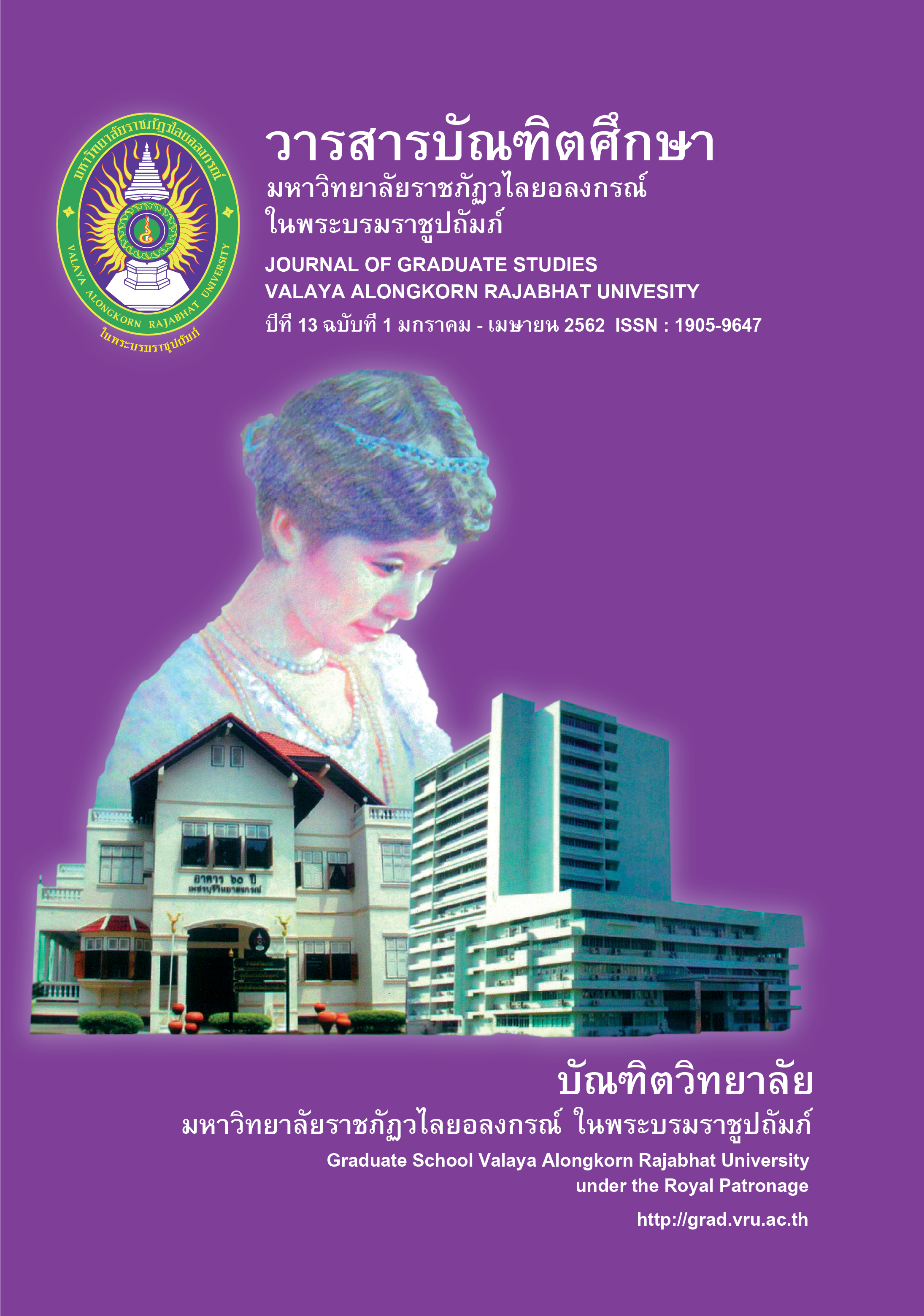DEVELOPMENT OF A SCIENCE INSTRUCTIONAL PROCESS BASED ON THE CONSTRUCTIVIST THEORY TO ENHANCE LEARNING ACHIEVMENT AND HIGHER ORDER THINKING ABILITY OF MATHAYOM SUKSA II STUDENTS
Main Article Content
Abstract
The purposes of this research were 1) to develop a science instructional process based on the Constructivist Theor, 2) to compare the post-learning science learning achievement of the students who learned according to the steps of the science instructional process based on the Constructivist Theory with the counterpart learning achievement of the students who learned under the conventional teaching method, and 3) to compare the post-learning higher order thinking ability of the students who learned according to the steps of the science instructional process based on the Constructivist Theory with the counterpart thinking ability of the students who learned under the conventional teaching method. This research was comprised two steps: (1) development of a science instructional process, and (2) try-out of the developed instructional process. The sample is a Mathayom Suksa II students by cluster sampling. Were 38 students of the experimental group and 4 students of control group. Research instruments were a science learning achievement test, and a higher order thinking ability test. Statistics employed for data analysis were the mean, standard deviation, and t-test.
The finding 1) The developed science instructional process was composed of the instructional process consisted of the following seven steps, (1) the problem confrontation step, (2) the knowledge survey step, (3) the knowledge verification step, (4) the knowledge sharing step, (5)the reflection of thought step, (6)the knowledge synthesis step, and (7)the knowledge application. 2) The experimental group had post-learning achievement scores significantly higher than the counterpart scores of the control group students at the .01 level of statistical significance. 3) The experimental group students had post-learning higher order thinking ability scores significantly higher than the counterpart scores of the control group students at the .01 level of statistical significance.
Article Details
บทความทุกเรื่องได้รับการตรวจความถูกต้องทางวิชาการโดยผู้ทรงคุณวุฒิ ทรรศนะและข้อคิดเห็นในบทความวารสารบัณฑิตศึกษา มหาวิทยาลัยราชภัฏวไลยอลงกรณ์ ในพระบรมราชูปถัมภ์ มิใช่เป็นทรรศนะและความคิดของผู้จัดทำจึงมิใช่ความรับผิดชอบของบัณฑิตวิทยาลัย มหาวิทยาลัยราชภัฏวไลยอลงกรณ์ ในพระบรมราชูปถัมภ์ กองบรรณาธิการไม่สงวนสิทธิ์การคัดลอก แต่ให้อ้างอิงแหล่งที่มา
References
Chareonwongsak, K. (2015). kān khit chœ̄ng wikhro [Analytical thinking]. 5th ed. Bangkok: Success Media.
Child, D. (1993). Psychology and the teacher. 5th ed. London: Holt, Rinchart & Winston.
Department of Curriculum and Instruction Development. (2003). kānčhat sāra kān rīanrū klum sāra kān rīanrū witthayāsāt [Learning content management, science learning substance]. Bangkok: Kurusapa Printing Ladphrao.
Dewey, J. (1976). Moral principle in education. Boston: Houghton Mifflin Co.
Drillcoll, M. P. (1994). Psychology of learning for instruction. Boston: All and Bacon.
Ennis, R. H. (1989). Critical thinking and subject specificty: classification and needed research. Educational Researcher. 18 (April 1989), 4 -10.
Gredler, M. E. (1997). Learning and instruction theory into practice. 3rd ed. New Jersey: Prentice-Hall Inc.
Khammani, T. (2014). rūpbǣp kānsō̜n : thāng lư̄ak thī lāklāI [Instructional model : various choices]. 8th ed. Bangkok: Chulalongkorn University Press.
Phye, G. D. & Andre, T. (1986). Cognitive classroom learning understanding, thinking, and problem solving. London: Academic Press Inc.
Seels, B. & Glasgow, Z. (1990). Exercises in instructional design. Columbus, OH: Merrill
Shambaugh, R. N. & Magliaro, S. L. (1997). Mastering the possibilities. Massachusetts: Allyn and Bacon.
Torrance, E. P. (1964). Education and the creative potential. Minneapolis: The Lund Press.
Woolfolk, A. E. (1995). Educational Psychology. 6th ed. Boston: Allyn and Bacon.

